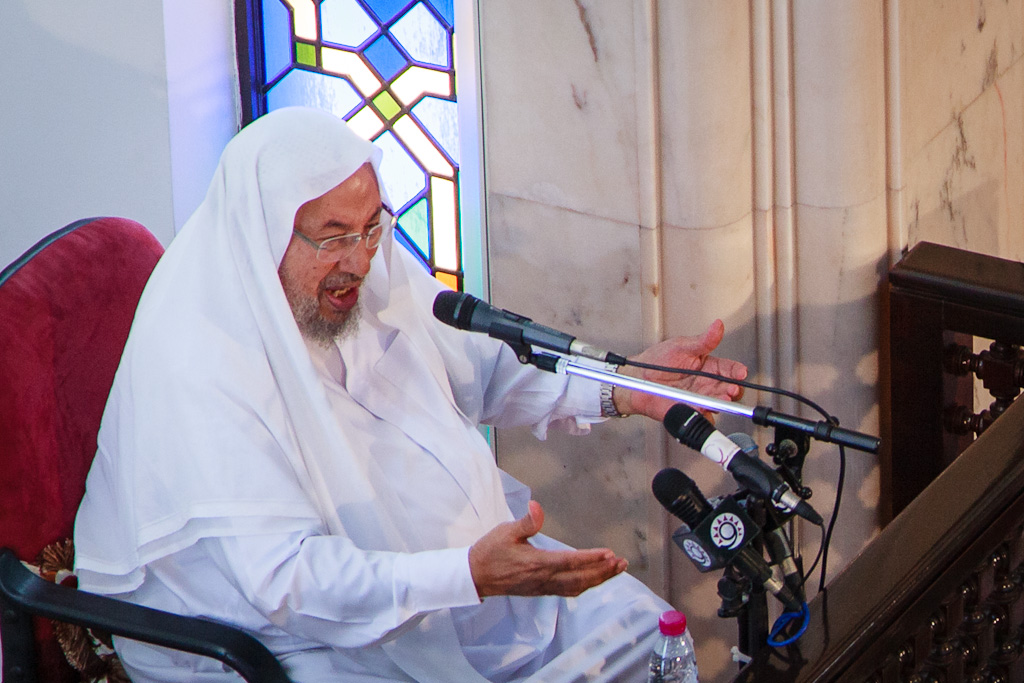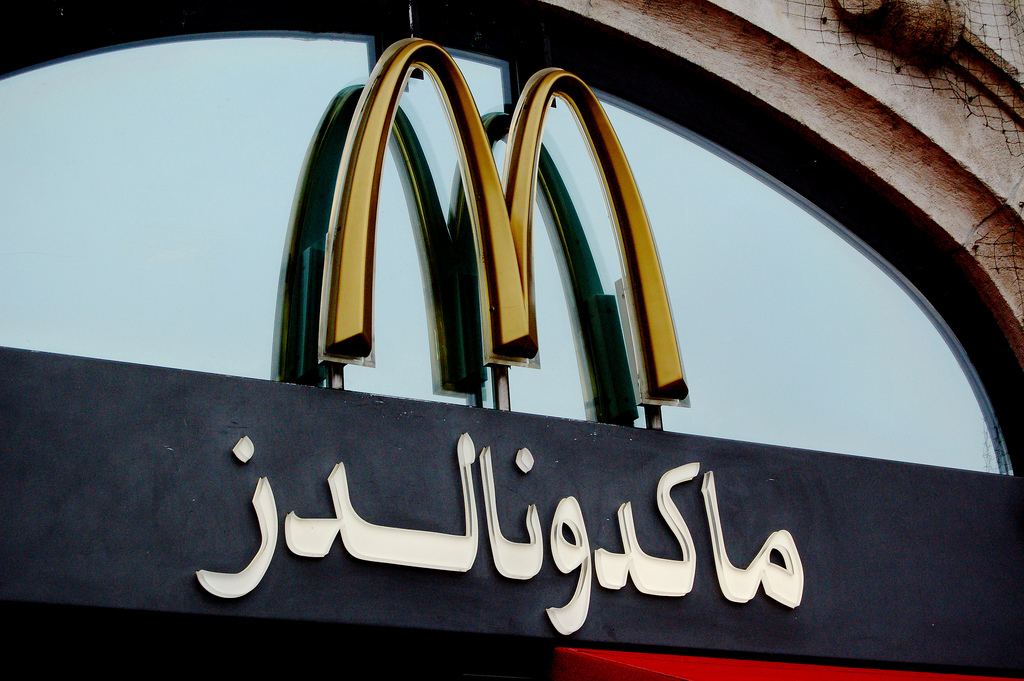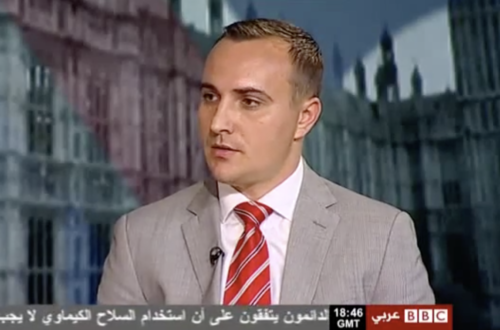Radical Islamism & its roots
‘(…) a response to the impact of modernity, Western encroachment, misrule by the national elite, and a whole series of massive economic and social dislocations. The result was a crisis of identity and a search for authenticity’.
David Zeidan
Radical Islamism has recently become a truly global phenomenon, somehow intrinsic to Middle Eastern political arena of the late 20th and the 21st century. This distinctive political ideology is, however, very often misunderstood and misused. The horrifying extent to which Islamic terrorism, so often associated with, or even sometimes unfairly equalled to Islamism, affects lives of millions of people around the world requires us to examine this recent phenomenon in bigger depth by assessing its roots and its meaning to the contemporary world.
First and foremost, this article focuses on the attempt to theorise Islamism and consequently address the interesting debate on whether politics is somehow intrinsic to Islam, thus claiming that Islam is best described as deen wa dawla, thus making Islamism somehow a natural part of real Islam. Subsequently, the theorisation of Islamism, as a strain of political ideology of fundamentalism, indicates that its nature is very difficult to define and theorise precisely. It is widely contended that:
‘The term Islamic fundamentalism is employed loosely (…) because there is in fact little agreement of what fundamentalism strictly constitutes. Scholars can agree to nothing more than the assertion that the term refers to “family resemblances”‘.
Beverley Milton-Edwards (2006)
Furthermore, many strains of Islamic fundamentalist ideology, like that in Egypt, Algeria, Pakistan and others, emerge as a response to the existence of ‘failed states’ that cannot provide efficient institutions to fight local poverty, unemployment and deepening inequalities within their societies, which leads to economic disappointment and deprivation. However, one needs to realise that these socio-economic explanations of the emergence and success of Islamism are limited, and the economic disappointment and deprivation does not account for the rise of Islamism exclusively (Ayubi 1991, 185).
Therefore, having primarily examined fundamentalist movements as a response to social and political injustice, this article will then focus on Islamism as a truly modern response to modernity with its increasing depreciation, or even denial, of religion and its forced withdrawal from the political life of Nasserite Egypt and other Middle Eastern countries. It is due to the secularisation of modern Arab societies that some of the fundamentalist movements find it so easy to prosper among the believers of Islam. Islamism, therefore, needs to be contextualised within settings of global ‘returns’ to religion and popular drive of Arab societies towards a redefinition of Islam on the political arena.
Finally, Islamism is also considered to be a popular response to the infamous humiliation of the Arab states in their defeat against Israel and the Western cultural invasion of the region that is believed to destroy local cultures and societies by enforcing the Western standards.
Islam versus Islamism
There is an ongoing debate on the socio-political nature of Islam. This issue is often very much disputed among various groups of both regular Muslims and the scholars. It is believed that the notion of politics and laws, as inherent elements of Islam, is central to Islamist ideologies. It is often the introduction of Shariah that is a fundamental goal of Islamist movements. Marty and Appleby address this in their encyclopaedic work on fundamentalism:
‘Jamaat-i-Islami and other fundamentalist movements characterize Islam as deen – a comprehensive way of life which covers the entire spectrum of human activity, be it individual, social, economic or political – while the conservative ulama confine Islam to the five pillars’.
Appleby & Marty 1991, 824
Political activism becomes, for the Islamists, a necessary part of Islamic life. Here the notions of ‘Islamic’ and ‘Islamist’ appear to lose any meaningful difference. Bernard Lewis believes that this distinction is also symptomatic of the diversity of Islamic interpretations of the Quran (Lewis, 1988). Islamists, in his view, follow the traditional rebellious role of the Prophet during his time in Mecca, whereas the conservative Muslims prefer to see the Prophet, as a more religious and moral figure.

Moreover, this argument indicates yet another very interesting systematic feature of the Islamist movements. It is often argued that the large majority of Islamist leaders, such as Abdul Ala Maududi – the founder of Jamaat-i-Islami, were not a theologian and barely occupied themselves with theological subtleties of Islam. As Marty and Appleby (1991, 825) indicate, ‘out of his more than 120 publications (…) Maududi has only one title on the purely theological issue’. Should we, however, agree that Islam is a highly politicised religion then the emergence of Islamism loses much of its exceptional nature. Nonetheless, I believe that there is a fundamental difference between the notion of Islam, as a religion, and Islamism, as a set of socio-political doctrines. Therefore, Islamism represents a typical form of fundamentalism, as a political ideology.
Islamism, however, does not constitute a very consistent ideology, in its typical theoretical understanding. It is believed that we should rather be speaking of ‘Islamisms’ with their various characteristics and roots. This is due to the fact that various strains of Islamic fundamentalism are highly difficult to theorise and classify under the same finite theoretical notion. This is very much similar to other forms of fundamentalism around the world and there seems to be a common ground about the scholars that we may only speak of ‘family resemblances’ between them. The list of those is, however, indefinite. It becomes obvious then that exclusive attribution of Islamism to the socioeconomic, political, cultural and other factors is inaccurate. Therefore, only those out of the whole range that appears most important to the author will be discussed below.
Islamism – a response to socioeconomic injustice
It is often believed that Islamism, is deeply embedded in the social, political and economic circumstances of the wider Middle East in the 20th and early 21st century. The newly instated post-colonial nationalist governments, like that of Nasser in Egypt, started the process of creating the countries completely anew with the powers often rested in the hands of a small but extremely influential elite. On the other hand though, as Hoffman and Graham cite after Zoubir, this modernisation projects meant that ‘large segments of society have been marginalised, leading to widespread anger, despair, banditry and utter hatred towards the states and its clienteles’ (Hoffman & Graham 2006, 400).
The post-colonial time was also characterised by large groups of rural population flowing into the already overcrowded urban areas of Cairo and Karachi, to name just a few. There was extremely little help provided to these new city dwellers. The social and economic support was hardly existent and therefore, it is not surprising to Kaplan that “the ills befalling these newly urbanising societies – among them slums, homelessness, malnutrition and crime – (…) indeed seem to be permanent results of the modernisation process” (Kaplan 1992, 7). Eventually ‘by the late 1970s and early 1980s many problems were apparent: population expansion, urban hypertrophy, lagging food production, (…) increasing inequality, political instability, and social fragmentation’ (Milton-Edwards 2006, 55). There was a widespread feeling of states failing to meet the needs of their population. When ‘modernity projects began to fall apart’ (ibid., 38) and the lack of prosperity, which is currently “one of the requirements of legitimate government” (Gray 2007, 95), became ever more apparent, some serious questions about the legitimacy of those failed states arose.
Large despair, present in many Muslim Arab countries of the time, made the newly arrived urban population turn to mosques and religious madrassas; institutions so central to their previous rural life and values; in desperation for some solutions (Milton-Edwards 2006, 125). There seems to be a common ground between the scholars “that in many Middle Eastern countries new arrivals to the cities become the most fervent adherents of the fundamentalist message” (Kaplan 1992, 8). Slogans of ‘Islam as the solution’ became increasingly appealing (Ayubi 1991, 230-238). Milton-Edwards even raises a question of how those could fail in the face of complete deterioration of large parts of the society (Milton-Edwards 2006, 53).

Islam, or rather Islamism, gave hope to the marginalised society. Ikhwan al-Muslimeen (Islamic Brotherhood) in Egypt and Hizb Allah in Lebanon originally consolidated its presence and popularity not by the violence and warfare but by establishing a programme of social welfare, and educational support that responded to the needs of largely abandoned communities (ibid., 28, 87). These fundamentalist movements simply filled the social gap created by the failed states. Kaplan (1992, 13) notices that: ‘All we can say with assurance is that as long as human suffering and uncertainty persist, fundamentalism will continue to be one of the options utilised to explain the world and to promise solace’.
One could though question whether this is a common attribute of all forms of Islamism and whether it is the only one. It has been already stated that providing any universal characteristic of all fundamentalist movements is highly debatable. Economic circumstances certainly played an important role in the increasing appeal of Islamism around the Middle East. However, it would be mistaken to attribute the rise of Islamism to economic deprivation alone.
Islamism – a response to the denial of political participation
Another very important factor that appears to account for the rise of Islamism is closely related to the inability of states to accommodate them within the national spectrum of political life. Ikhwan al-Muslimeen in Egypt, Jammat al-Islami in Pakistan, Hizb ut Tahrir in Jordan, Hamas in Palestine, Hizb Allah in Lebanon and some others have one thing in common. Although largely popular and backed by some local communities, they always tend to be denied any kind of role in the policy-making process. This appears quite evident in Ayubi’s (1991, 218) examination of this phenomenon: “[T]he Iranian regime under the Pahlavis, the Egyptian regime under Nasser and Sadat, and several others, were closed systems that did not allow genuine political participation (…)”.
Moreover, representatives of those movements were often interned and eventually executed (as for instance Sayyid Qutb – the mastermind of the Muslim Brotherhood and Hassan Al-Banna – its founder). Hostility towards fundamentalism in the Muslim world, on the other hand, seems to be a perfect stimulus for strengthening its popularity and further emergence of new movements. Zeidan claims that “[h]eavy-handed repression by military-backed regimes – armed with their own powerful Arab nationalist ideology – left no avenues for protest except through the religious idiom.” Fundamentalism is then often equivalent to ‘the pursuit of power or influence by groups which consider themselves to be disenfranchised politically or culturally’ (Ruthven 2007, 55) Their drive to militancy and violence often constitutes a response to the brutal and direct squashing of their role in public life. The role of fundamentalist movements in Jordan, where plural democratic system flourishes and Islamism has a marginal relevance to politics, only proves the significance of that claim. Milton-Edwards (2006, 121) notices that in the environment of openness towards all political fractions, ‘even the fundamentalists were willing to openly contest each other for power through the ballot box, not the Armalite.’
Islamism – a response to a modern, ‘Godless’ state
The above analysis of various social and political backgrounds of fundamentalism largely explains Pelletiere’s (1995, 34) approach to that phenomenon. He argues that ‘what the West regards as a movement of religious fundamentalism is, in reality, a reaction to over a half-century of misrule by secular regimes’. He then further describes one of the key characteristics of modern Islamism as a loss of the state’s legitimacy through its stigmatisation as ‘godless’ (ibid.). Most of the scholars (Ruthven, Gray, Milton-Edwards, Kaplan, Marty and Appleby etc.) commonly agree that Islamism represents a popular response to the secularisation of the political and social life of the Arab states. Process of depriving religion of its participation in politics is central to the emergence of various fundamentalist groups globally, and for that matter is not only an Islamic phenomenon.

Islamist ideologues, like Moulana Abul Haq, claim that ‘deprivation from progress and our present decline are the result of our neglect of Islam’ (Milton-Edwards 2006, 39). The rejection of religion by the secular states is often blamed for civil distress and increasing impoverishment of the society. Ayubi (1991, 226) recognises that: “[state’s] cultural alterity, political authoritarianism and economic failure are taken by the Islamists to be symptoms of a deeper sin, which is a betrayal of God.” The same rhetoric can also be heard from one of the most popular contemporary Islamists, Sheikh Yusuf al-Qaradawi: “The call for secularism among Muslims is atheism and a rejection of Islam. Its acceptance as a basis for rule in place of the Shari’a is downright riddah [apostasy]” (Milton-Edwards 2006, 73).
This, to a large extent, populist claim finds itself very acknowledged by the people on the streets of Cairo, Gaza, Beirut or Tehran. The same claim was also central to Sayid Qutb’s teaching on the current Arab world living in a state of jahiliyya (Ruthven, 25). For Qutb, no revival of prosperous Islamic communities or any progress whatsoever is possible “without the retrieval of pristine beginnings and the cleansing of the essence from the adulteration of history.” (Al-Azmeh 1991, 87)
Islamist agenda of bringing God back into politics has become very popular and deeply desired by large parts of the society. This has become the major aim of the Muslim Brothers in Egypt, where the organisation strives to primarily change the entire civil society and bring Allah back to people’s daily routines (Bayat 1998, 161). Islamic fundamentalist movements work towards the implementation of various religious practises in public life and openly oppose the liberal tradition of permissiveness towards various modern behaviours. Islamism, though claiming to be religious, always aims for political power and has clear political aspirations. Hassan al-Banna, the founder of the Muslim Brotherhood, irrefutably reveals his political ambitions saying: ‘Allah is Our Lord. Mohammed is Our Leader. The Koran is Our Constitution. Jihad is Our Way. Martyrdom is Our Desire’ (Hussain 2007, 53) – statement hugely controversial and excessively politically flavoured to mainstream Muslims.
Islamism – a response to ‘Westoxication’ & erosion of authenticity
Sayyid Qutb famously stated that ‘humanity is living today in one large brothel!’ (Hoffman & Graham 2006, 401), and it is the modernity and secularism, both fruits of the Western world, to be held responsible for that moral deterioration. This modernity with its departure from traditional, often rural values is believed to be largely influenced by globalisation, with its mostly Western/American cultural and economic hegemony and the long era of colonialism. Bruce Lawrence argues that “in Islam (…) fundamentalism represents a ‘delayed reaction to the psychological hegemony of European colonial rule’” (Marty & Appleby 1991, 814). Impact of Western domination over the region is also apparent in Kaplan’s argument that zealous rejection of ‘Westoxification’ with its individualistic materialism was key to the Iranian Islamic Revolution. Although the ideological fight against the imperialistic appetites of the West may not directly account for the rise of modern Islamic fundamentalism, it certainly strengthens its position. I believe that Fuller very interestingly presents the position of religious fundamentalism fighting the foreign tyranny:
‘People who resist foreign oppression seek banner to propagate and glorify the cause of their struggle. The international class struggle for justice provides a good rallying point. Nationalism is even better. But religion provides the best one of all, appealing to the highest powers in prosecuting its cause’.
Graham Fuller 2003, 52
“The humiliation suffered by Arab regimes against Israel” (36) can be seen as yet another factor important in explaining the rise of Islamism. Hoffman and Graham state: “After the traumatic military defeat by Israel in 1967, Islamic orthodoxy began to gain increasing numbers of adherents” (Hoffman & Graham 2006, 401). The importance of this incident to our current debate on Islamism may be arguable but it seems quite clear that this military defeat has often been described in religious terms and served as an example of current deterioration of the Islamic ‘civilisation’ (the author does not mean to use this term in its infamous Huntingtonian meaning).

Both the imperialist behaviour of the West and the defeat by Israel can be attributed to the increasing crisis of identity arguably felt all over the Middle East. Modern streets of Doha, Dubai or Beirut, to name just a few, has become increasingly westernised and lose much of their traditionally Arabic appearance, its ‘authenticity’. The collapse of traditional societies and ‘loss of pristine cultures’ (Gray 2007, XVIII), as argued by Gray, provides a good breeding ground for religious extremism. Islamism, to some arguable extent, seems to be a by-product of globalisation, which causes deterioration of communal identity.
This identity, or as al-Azmeh advances ‘authenticity’, is meant to be found in the return to the Islamic path, with its glorious times of the Prophet. Although this idea is hugely romanticised, it is frequently argued that: ‘Time is devoid of quality, corruption is purely vicarious, and the present is but a negative interregnum between a perfect origin and its recommencement, which is also its consummation’ (Al-Azmeh 1991, 89). Here, the Islamist reference to glorious, though often largely constructed past, could not be more apparent. It is the ‘comeback’ to Islam that is supposed to return authenticity and identity to the Muslim communities of the Middle East and the idea of failed Arab nationalism is now being substituted by the ideas of Pan-Islamism. Islamism provides people with a sense of belonging, arguably lost.
Islamism is a form of political fundamentalism extremely difficult to theorise. Milton-Edwards maintains that ‘there is in fact little agreement on what fundamentalism strictly constitutes’ (Milton-Edwards 2006, 2). There is even more confusion if we agree on the exceptional relation between Islam and politics. However, there certainly is a list of factors that account for the rise of fundamentalism, which this article attempts to indicate.
Fundamentalism is rooted in the specific historical background of the 20th and early 21st century. Islamism of Egypt, Algeria, Lebanon or Iran has a strong background in the economic and social crisis of the failed post-colonial nationalist or socialist states that caused large impoverishment of the society, high rate of unemployment and common despair. Its emergence cannot be, however, contributed solely to the socio-economic circumstances of the region. Denial of political participation and brutal squashing of many Islamist movements only deepened the sense of civil disempowerment that effectively strengthened the position of Islamist projects and gave birth to others.
It was though the rejection of religious principles and ‘removing God from politics’ that was the major cause for the rise of Islamist revivalism. People often believe that secularisation of the socio-political life brought all the ills befalling on their societies. This realisation of the centrality of religion to Muslim life also provided a strong sense of identity in the globalised world of liberal plurality often advanced by the local secular governments. This Islamic identity filled the lack of authenticity left by the nationalist projects in Egypt, Algeria and others. Muslim Pan-Islamism advocating the unity of Muslims under a banner of Islamic identity brought about a strong sense of empowerment that was brutally diminished by the humiliation of many Muslim states.
These are just some of the factors that appear to be important to the rise of modern Islamic fundamentalism. Certainly, their significance may be debatable or disputed. Many others will most probably still reshape our understanding of Islamism, as it remains to be increasingly popular for some and terribly destructive for others.
Bibliography:
Al-Azmeh, Aziz, Islams and Modernities, 2nd Edition, (Verso: London and New York, 1996)
Appleby, R. Scott and Martin E. Marty, ‘Conclusion: An Interim Report on a Hypothetical Family’, in Fundamentalisms Observed, ed. by R. Scott Appleby & Martin E. Marty (The University of Chicago Press: Chicago, 1991), 814-842
Ayubi, Nazih N., Political Islam: Religion and Politics in the Arab World, (Routledge: London, 1991)
Bayat Asef, “Revolution Without Movement, Movement Without Revolution: Comparing Islamic Activism in Iran and Egypt”, in Comparative Studies in Society and History, Vol. 40, Number 1, (Cambridge Univerity Press: January 1998), 136-169
Castells, Manuel, The Information Age: Economy, Society And Culture, Vol II, The Power of Identity, (Blackwell Publishers: Massachusetts and Oxford, 1997)
Gray, John, Al Qaeda And What It Means To Be Modern, (Faber and Faber: London, 2007)
Hoffman, John and Paul Graham, ‘Fundamentalism’ in Introduction to Political Theory, (Pearson Education Ltd: Harlow, 2006), 392-413
Husain, Ed, The Islamist, (Penguin Books: London, 2007)
Lewis, Bernard, “Islamic Revolution”, in The New York Review of Books, Vol. 34, No. 21 & 22, (January 21, 1988)
Kaplan, Lawrence, ‘Introduction’, in Fundamentalism in Comparative Perspective, ed. by Lawrence Kaplan (The University of Massachusetts Press: Amherst, 1992), 3-14
Milton-Edwards, Beverley, Islamic Fundamentalism Since 1945, (Routledge: New York, 2006)
Pelletiere, Stephen C., A Theory of Fundamentalism: An Inquiry Into the Origin and the Development of the Movement, (U.S. Army War College: Carlisle, PA, 1995)
Ruthven, Malise, Fundamentalism, A Very Short Introduction, (Oxford University Press: Oxford, 2007)
Zeidan, David, “Radical Islam In Egypt: A Comparison Of Two Groups”, in MERIA Middle East Review Of International Affairs Journal, Vol. 3, No. 3, (September 1999)


